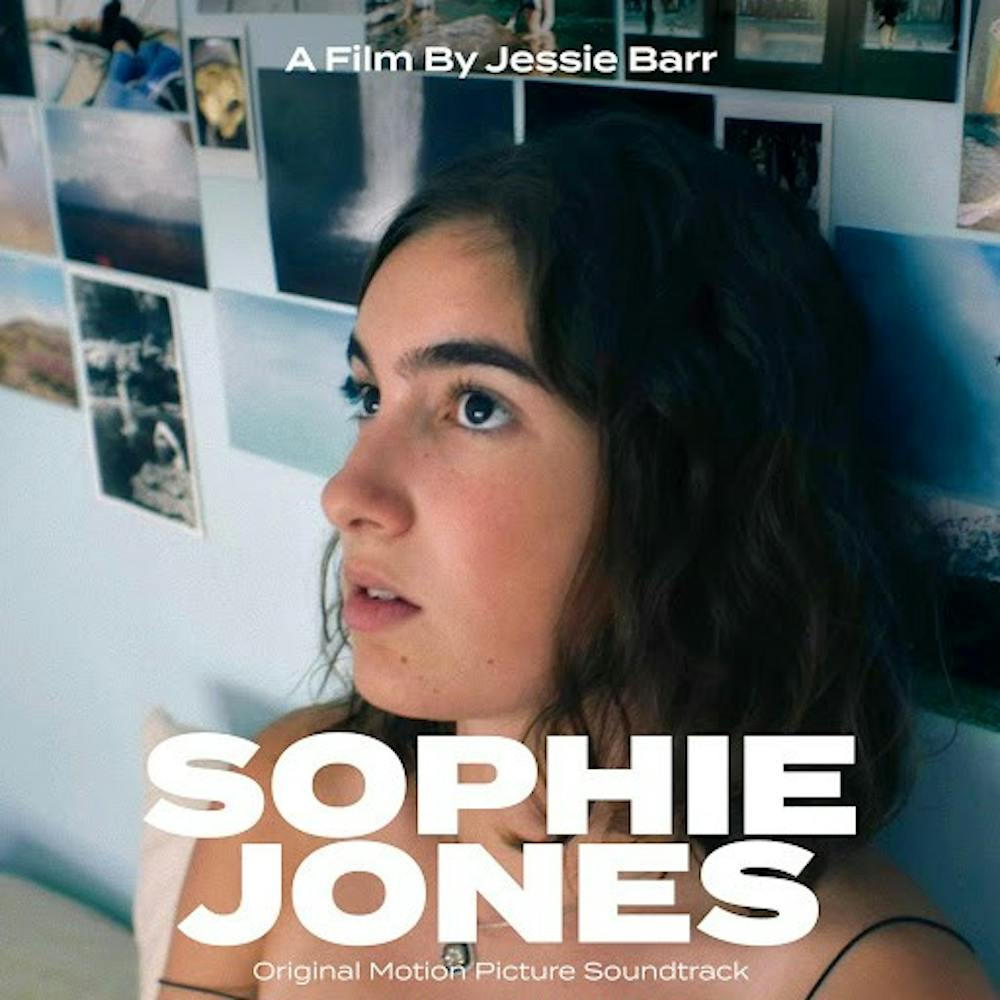From that first glimpse into Sophie Jones’ world, it’s impossible not to get swept up in “Sophie Jones” and the painfully authentic story of a teenage girl grappling with the death of her mother. The film’s depiction of grief, accompanied by its portrayal of the awkwardness and excitement of high school relationships, makes it clear that “Sophie Jones” is not your usual rose-colored coming-of-age film. Rather, Jessie Barr and her cousin Jessica Barr — both producers of the film — succeed in highlighting those slice-of-life moments that many movies about teens tend to gloss over. While the cast’s grit in portraying both tear-jerking and comical scenes is evident, there seems to be an unspoken character wavering in between and behind the scenes — music.
In an interview with The Eagle, director Jessie Barr explained how her background in the arts inspired her love for music in film.
“I always loved music in relation to story,” Jessie Barr said. “I love how immersive it is and how intimate it is.”
Although her professional background mainly centers around independent film and theater, Barr’s childhood was filled with all things fine arts, with everything from opera to Shakespeare.
A self-proclaimed “Shakespeare nerd,” Jessie Barr said that her introduction to literature was what caused her to fall in love with storytelling of all forms.
“I’m obsessed with Shakespeare,” Jessie Barr said. “There’s such a rhythm to poetry, to plays because you don’t have the image like you do in cinema. You have to create a world with rhythm and sound.”
Fascinated with the way sound can sculpt stories in prose, Jessie Barr explored her interest in music as a child through singing opera. As a filmmaker, having the right songs to accompany her storytelling was a priority in the making of “Sophie Jones.” After a rough cut of the film had been shot, Jessie Barr began her search for a composer. As a lover of “The Diary of a Teenage Girl,” which features a soundtrack composed by Grammy-nominated composer Nate Heller, she decided to reach out to Heller himself.
“I just cold emailed him,” Jessie Barr said. “I reached out and said what I was looking for and how huge a fan I am of his. I sent him a rough cut of the film and sort of poured my heart out in the email. And then he watched it and really responded to it. From there, we started collaborating together.”
The combined musical influences of Jessie Barr and Heller are evident in the film’s vibrant soundtrack. With the first half consisting of needledrop, riot grrrl-inspired tracks and the second half featuring Heller’s original score, music plays a prominent role in depicting Jones' life, grief, sexuality, and inner thoughts throughout the film. The soundtrack’s fusion of genre-bending indie tracks and instrumental compositions were integral to the humanistic construction of Jones’ identity as an imperfect yet thoughtful and introspective teenage girl.
“I felt [the songs] needed to represent the sort of anger and rage and sort of desire to obliterate yourself that you feel at any age but most keenly when you're a teenager and also experiencing tremendous grief and groundlessness. And it was important to me that a lot of the voices be female voices,” Jessie Barr said in reference to the first half of the soundtrack, which features artists like Ezza Rose, Mutt and Beverly.
Jessie Barr explained that she wanted three different musical worlds to exist sonically within the film — the head-banging, female-fronted indie music at the beginning, the use of atmospheric, textured sounds like water and breath throughout the film, and Heller’s original compositions during the concluding half.
“My editor and I had found specific places where we felt the score could live and felt necessary,” Jessie Barr said. “So when I talked with Nate, a lot of our conversations were about what those moments are and what we need them to do narratively. A lot of that had to do with expressing the sort of inner world that Sophie is fighting against. A lot of that had to do with her more quiet, introspective self and also the part of her that is related to her mom and the presence of her mom.”
About halfway through the film, there is a clear transition in not only the soundtrack but also Sophie as a personification of the timeless narrative of being young and grieving. Heller’s pieces, named for specific scenes in the film, act almost as a character of their own, interacting with Jones’ emotions and also providing insight for the audience to interpret her emotional journey. With tracks titled “Expired Pills,” “Hickey”’ and “I Have Your Eyes,” fans of “Sophie Jones” will be quick to notice the way listening to the score draws them back to specific, memorable scenes within the films. Perhaps one of the most remarkable scenes is the one of Sophie, Lucy and their father standing at the shore as “Ashes Into the Sea” by Heller featuring King Isis plays at the end of the film. When she first heard the song, Jessie Barr said she “broke down weeping” in Nate’s home studio.
“When I talked to Nate, I was like, ‘Oh, we'll just have something instrumental here for this last piece.’ So when I heard King Isis’ voice break through, it was so unexpected because I wasn't prepared to hear a vocal. It was so moving and really unlike anything I thought could possibly be made for that piece. That song really did elevate and capture the moment in a way that I couldn't even have dreamed up honestly,” she said.
While indie film critics and enthusiasts typically find joy in analyzing primarily the videography and acting in movies, the “Sophie Jones: Original Motion Picture Soundtrack” is proof that music can morph into extension of the storytelling itself and should not be overlooked.





